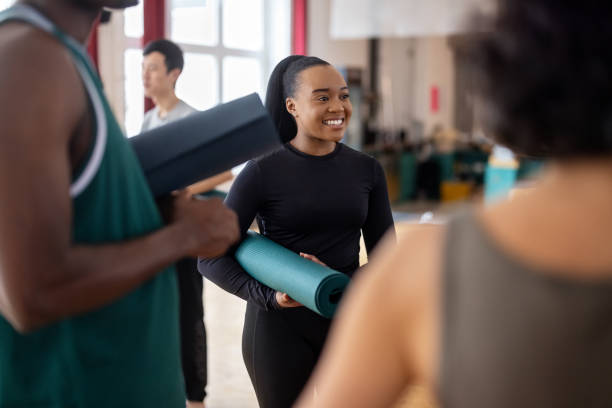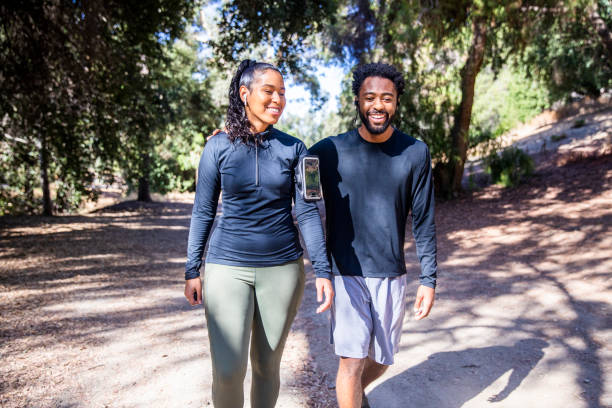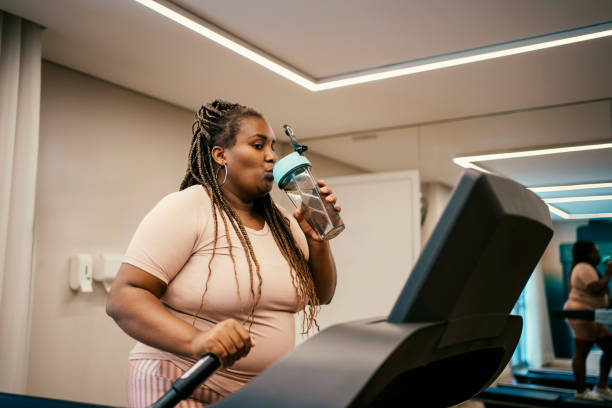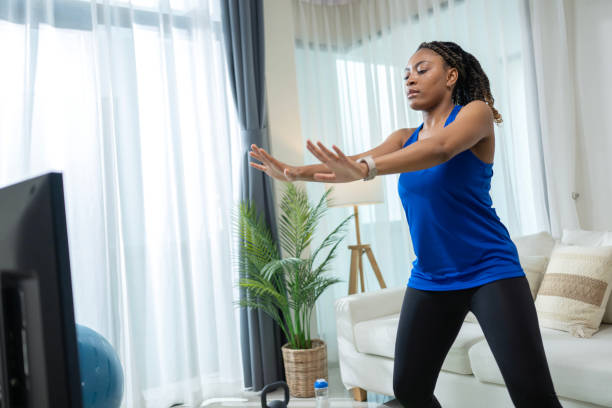(BlackFitness101.com) When it comes to fitness, one of the biggest hurdles for many people is gym anxiety. You might be excited about the idea of getting fit, building strength, or improving your health, but just the thought of stepping into a gym can feel daunting. You’re not alone—gym anxiety is common, and the good news is that it’s something you can overcome.
Whether it’s fear of being judged, uncertainty about how to use the equipment, or feeling overwhelmed by all the fitness enthusiasts around, many people deal with these challenges. In this article, I will walk you through actionable strategies that can help you overcome gym anxiety and build the confidence you need to reach your fitness goals.

Understanding Gym Anxiety
Before diving into solutions, it’s important to first understand what gym anxiety is. Gym anxiety refers to the feelings of nervousness, discomfort, or fear that people experience in the gym setting. This can manifest in various ways, such as:
- Fear of Judgment: Many people feel like others are watching or judging them, especially if they’re new to the gym or not in their best shape.
- Uncertainty About What to Do: The unfamiliarity with gym equipment, workout routines, or even the gym environment itself can cause significant stress.
- Body Image Issues: Feeling self-conscious about one’s appearance or fitness level can make stepping into a gym feel intimidating.
- Overcrowding: Busy gyms can heighten feelings of anxiety due to the pressure of working out in front of others or waiting for equipment to become available.
These are just a few of the many reasons why gym anxiety can occur. However, with the right approach and mindset, you can turn the gym into a place of growth and empowerment rather than fear.
1. Start with a Plan
One of the most effective ways to overcome gym anxiety is to have a clear plan before you even walk into the gym. Not knowing what to do can be a major source of stress. A plan gives you direction and helps you stay focused on your own goals rather than worrying about what others might think.
Here’s how you can create an effective workout plan:
- Define Your Goals: Do you want to lose weight, build muscle, improve endurance, or increase flexibility? Your goals will guide your workouts and keep you motivated.
- Structure Your Workouts: Break down your workout into specific exercises, sets, and reps. You can follow workout programs designed by fitness professionals or create your own based on your goals.
- Familiarize Yourself with Exercises: Before you step into the gym, spend some time learning the exercises in your plan. Watch videos or read about proper form to ensure you feel more confident.
- Schedule Your Gym Time: Pick times when the gym is less crowded if possible. Early mornings or late evenings are often quieter, which can reduce the pressure of being around a lot of people.
By having a clear plan, you’ll feel more confident, and you’ll be less likely to wander around aimlessly, which can draw attention and exacerbate anxiety.
2. Start Small and Gradual
Jumping into an intense workout right away can be overwhelming, especially if you’re new to the gym or haven’t worked out in a while. Instead of trying to do everything at once, start small and build up gradually. This not only helps ease gym anxiety but also reduces the risk of injury.
Here are a few tips to help you get started:
- Begin with Simple Exercises: If you’re new to the gym, start with basic exercises like walking on the treadmill, light weightlifting, or bodyweight exercises. This will help you become familiar with the gym environment without pushing yourself too hard.
- Use Machines Instead of Free Weights: Machines are often easier for beginners because they guide your movements and reduce the risk of using improper form.
- Limit Your Time at the Gym Initially: Start with short, manageable workouts (20-30 minutes) and gradually increase the time as you become more comfortable.
By starting small, you’ll gain confidence and get used to the gym environment without feeling overwhelmed.
3. Focus on Yourself, Not Others
One of the most common reasons for gym anxiety is the fear of being judged by others. This fear can hold you back from reaching your full potential. However, it’s important to remember that most people at the gym are focused on their own workouts and goals—they’re not paying attention to what others are doing.
Here’s how you can shift your focus:
- Use Headphones: Music can be a powerful tool for boosting your mood and concentration. Wearing headphones and listening to your favorite tunes can help you zone out distractions and focus on your own workout.
- Avoid Comparing Yourself to Others: Everyone is at a different stage in their fitness journey. Comparing yourself to others can create unnecessary pressure. Focus on your progress and celebrate your own achievements.
- Find a Quiet Spot: If possible, choose a spot in the gym where you feel more comfortable, like a less crowded corner or an area away from mirrors. This can help reduce the feeling of being watched.
By staying focused on yourself and your goals, you’ll find that the gym becomes a much less intimidating place.
4. Practice Deep Breathing and Mindfulness
When gym anxiety strikes, it’s easy to get caught up in negative thoughts and emotions. Learning how to calm your mind and body can make a big difference in how you feel during your workouts.
Here are a few techniques you can use:
- Deep Breathing: Take slow, deep breaths to calm your nervous system. Focus on inhaling through your nose and exhaling through your mouth. This helps reduce feelings of anxiety and tension.
- Mindfulness: Mindfulness involves staying present in the moment. Instead of worrying about what others think or stressing about future workouts, focus on what you’re doing right now. Pay attention to your body, your breath, and your movements.
- Positive Visualization: Visualize yourself successfully completing your workout and feeling strong and confident. Positive mental imagery can boost your self-esteem and reduce anxiety.
Practicing mindfulness and deep breathing exercises before and during your workout can help you stay calm, focused, and in control.
5. Bring a Workout Buddy
Working out with a friend can significantly reduce gym anxiety. Having someone by your side offers support, encouragement, and a sense of accountability. A workout buddy can also help you feel less self-conscious because you’re focused on each other rather than on what others around you might think.
Here’s how a workout buddy can help:
- Accountability: Having someone to meet at the gym can motivate you to show up, even when you’re feeling anxious.
- Support: A workout buddy can guide you, help you with exercises, and offer moral support when you’re feeling nervous.
- Fun Factor: Exercising with a friend can make your workouts more enjoyable and less stressful.
If you don’t have a workout buddy, consider joining a group fitness class or hiring a personal trainer. Group settings can make you feel less isolated and more supported.
6. Get a Personal Trainer
If gym anxiety is holding you back from reaching your fitness goals, hiring a personal trainer can be a game-changer. A personal trainer can guide you through your workouts, teach you how to use equipment properly, and provide personalized feedback to help you improve.
Here’s how a personal trainer can help ease your gym anxiety:
- Personalized Workouts: A trainer will create a workout plan tailored to your fitness level, goals, and preferences. This takes the guesswork out of your workouts and gives you a clear roadmap to follow.
- Proper Form and Technique: One of the biggest causes of gym anxiety is not knowing how to use equipment or perform exercises correctly. A personal trainer will teach you the proper form, reducing the risk of injury and boosting your confidence.
- Motivation and Encouragement: Trainers provide constant encouragement and motivation, helping you stay focused and pushing you to achieve your best results.
With the guidance of a personal trainer, you’ll feel more confident and empowered in the gym, making it a much less intimidating experience.
7. Celebrate Small Wins
Overcoming gym anxiety is a process, and it’s important to celebrate your progress along the way. Each time you show up at the gym, complete a workout, or try something new, you’re making progress toward your fitness goals.
Here’s how you can celebrate your wins:
- Set Small Goals: Break down your larger fitness goals into smaller, more manageable steps. Celebrate each time you hit one of these mini-milestones, whether it’s lifting a heavier weight, running for an extra minute, or simply showing up consistently.
- Keep a Fitness Journal: Tracking your progress in a fitness journal can help you see how far you’ve come. Writing down your achievements and reflecting on your workouts can be incredibly motivating.
- Reward Yourself: Treat yourself to something special when you reach a goal. This could be new workout gear, a relaxing massage, or a favorite healthy meal.
By celebrating your wins, you’ll build positive momentum and increase your motivation to keep going.
8. Overcome the Fear of the Unknown
A significant part of gym anxiety stems from fear of the unknown—what to expect, how to navigate the gym, or how to use the equipment. One of the best ways to overcome this fear is to familiarize yourself with the gym environment before diving in.
Here’s how to overcome the fear of the unknown:
- Take a Gym Tour: Most gyms offer free tours for new members. Take advantage of this to learn the layout, find out where the equipment is, and get familiar with the different areas of the gym (e.g., cardio section, weightlifting area, stretching zones).
- Attend an Orientation Session: Many gyms also offer free orientation sessions where staff members show you how to use the equipment. This is a great opportunity to ask questions and get comfortable with the machines.
- Practice at Home: If you’re unsure about certain exercises, practice at home first. Bodyweight exercises, stretches, and using resistance bands can help you build confidence before you try them in the gym.
By familiarizing yourself with the gym environment and equipment, you’ll feel more confident and prepared when it’s time to work out.
9. Dress Comfortably and Confidently
The right workout clothes can make a big difference in how you feel at the gym. Wearing comfortable, breathable clothing that you feel good in can boost your confidence and reduce feelings of self-consciousness.
Here are a few tips for choosing the right workout attire:
- Comfort: Choose clothes that allow for a full range of motion and keep you cool during your workout. Moisture-wicking fabrics are ideal for preventing sweat from becoming uncomfortable.
- Fit: Wear clothes that fit well but aren’t too tight or too loose. Clothes that fit your body properly can make you feel more confident and less worried about adjusting them during your workout.
- Confidence: Pick workout gear that makes you feel good about yourself. When you feel confident in what you’re wearing, you’re more likely to feel comfortable in the gym.
When you look and feel good, you’ll be less focused on what others think and more focused on your workout.
10. Shift Your Mindset
Overcoming gym anxiety ultimately comes down to shifting your mindset. Instead of viewing the gym as a place of judgment or intimidation, try to see it as a place of growth, empowerment, and self-care.
Staff Writer; Janet Banks
Questions? Feel free to email me at; JBanks@BlackFitness101.com.












Leave a Reply